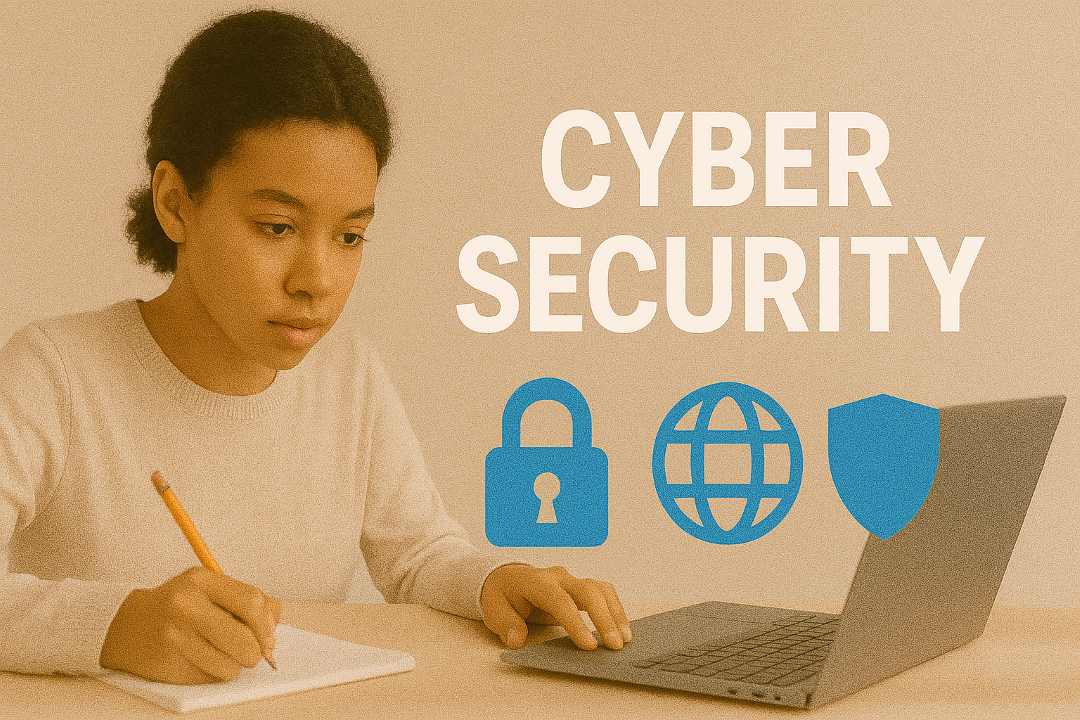
💡 What is Cybersecurity?
Cybersecurity is the practice of protecting:
✅ Computers
✅ Networks
✅ Systems
✅ Data
✅ Users
…from unauthorized access, attacks, damage, or theft.
It’s about building trust in technology — so people can use apps, online banking, school systems, or e-commerce safely.
⚠️ 1. Common Cyber Threats
✅ Malware
Malicious software: viruses, worms, ransomware, spyware
Example: A file that encrypts your computer and demands payment
✅ Phishing
Fake emails or messages that trick you into giving login info
Example: "Click here to update your bank info"
✅ Social Engineering
Manipulating people into giving access
Example: Someone pretending to be tech support
✅ DDoS Attacks
Overloading a website or server to make it crash
✅ Insider Threats
Employees or users who misuse access on purpose or by mistake
🛡️ 2. Cybersecurity Goals (CIA Triad)
Together, these create the foundation of secure systems.
🧰 3. Basic Protection Measures
✅ Use strong, unique passwords
✅ Enable two-factor authentication (2FA)
✅ Keep systems and software updated
✅ Use antivirus and firewalls
✅ Avoid clicking suspicious links or attachments
✅ Regularly back up important data
These steps can protect you from most everyday attacks.
🔒 4. Network Security Basics
✅ Firewall
Controls incoming and outgoing traffic
Acts as a barrier between your device and the internet
✅ VPN (Virtual Private Network)
Encrypts your internet traffic and hides your location
Useful for privacy on public Wi-Fi
✅ Encryption
Converts data into unreadable form unless decrypted
Used in messaging apps, banking, and cloud storage
👤 5. User Security Awareness
Many attacks start with people, not systems. So we teach:
✅ Don't reuse passwords
✅ Lock your screen when away
✅ Report suspicious messages
✅ Think before clicking
Security starts with behavior.
🔄 6. Cybersecurity in Ethiopia (Real Context)
University networks need to protect student records
Mobile money services like Telebirr must prevent fraud
Government portals (ID, tax, health) need strong access control
Startups and NGOs must protect customer and donor data
Cybersecurity is now a must-have skill in both public and private sectors.
🛠️ 7. Essential Cybersecurity Tools
🎓 8. Career Paths in Cybersecurity
✅ Security Analyst
✅ Ethical Hacker (Penetration Tester)
✅ SOC Analyst (Security Operations Center)
✅ Network Security Engineer
✅ Information Security Officer
✅ Cybersecurity Consultant
✅ Malware Analyst
✅ Digital Forensics Investigator
🔐 9. Certifications That Help You Get Hired
CompTIA Security+ – Best for beginners
CEH (Certified Ethical Hacker)
CISSP (Advanced Security Professional)
Cisco CyberOps – For those with networking knowledge
Google Cybersecurity Certificate – New and beginner-friendly
💡 Cybersecurity in Daily Life
✅ Lock your devices
✅ Update your apps
✅ Don’t overshare online
✅ Protect Wi-Fi with a strong password
✅ Use encrypted messaging like Signal or WhatsApp
Comments (0)
Categories
Recent posts


Ethiopia University Exit Exam: What You ...
27 Jun 2023
Grade 12 Exam Preparation Ethiopia | ...
18 Mar 2025
How to Make Money Online in Ethiopia | ...
18 Mar 2025




